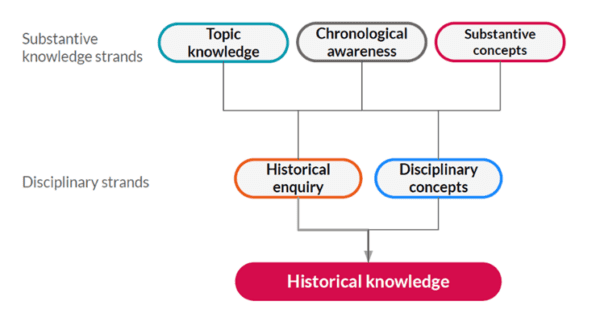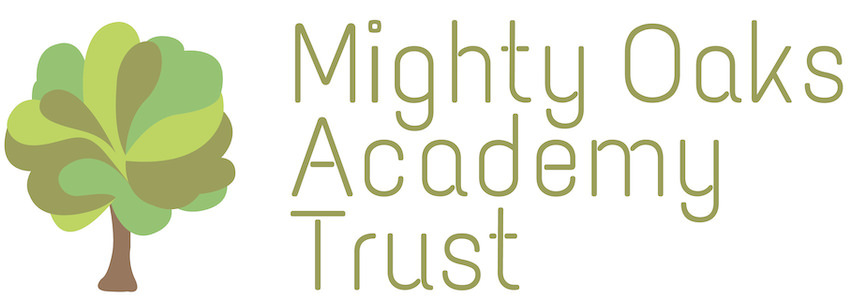History
INTENT
In History, we aim to inspire pupils to be curious and creative thinkers who develop a complex knowledge of local and national history and the history of the wider world.
We want pupils to develop the confidence to think critically, ask questions, and be able to explain and analyse historical evidence.
We aim to build an awareness of significant events and individuals in
global, British and local history and recognise how things have changed over time. History will support children to appreciate the complexity of people’s lives, the diversity of societies and the relationships between different groups. Studying History allows children to appreciate the many reasons why people may behave in the way they do, supporting children to develop empathy for others while providing an opportunity to learn from mankind’s past mistakes.
We aim to support pupils in building their understanding of chronology in each year
group, making connections over periods of time and developing a chronologically-secure knowledge of History.
We hope to develop pupils’ understanding of how historians study the past and construct accounts and the skills to carry out their own historical enquiries. In order to prepare pupils for their future learning in History, our scheme aims to introduce them to key substantive concepts including power, invasion, settlement and migration, empire, civilisation,
religion, trade, achievements of humankind, society and culture.
IMPLEMENTATION
We have identified the following key strands to meet our Curriculum aims:

These strands are interwoven through all our History units to create engaging and enriching learning experiences which allow the children to investigate history as historians do.
Each six-lesson unit has a focus on chronology to allow children to explore the place in time of the period they are studying and make comparisons in other parts of the world. In EYFS, children explore the concept of history by reflecting on key experiences from their own past, helping them understand that they each have their own histories. Then, they engage in activities to compare and contrast characters from stories, including historical figures, deepening their understanding of how individual lives fit into broader historical narratives.
Children will further develop their awareness of the past in Key stage 1 and will know where people and events fit chronologically. This will support children in
building a ‘mental timeline’ they can refer to throughout their learning in Key stage 2 and identifying connections, contrasts and trends over time.
We have two EYFS units focused on each of the history-related Development matters
statements. These units consist of a mixture of adult-led and child-initiated activities
which can be selected by the teacher to fit in with Reception class themes or topics. In Key
stage 1 and 2, units are organised around an enquiry-based question and children are
encouraged to follow the enquiry cycle (Question, Investigate, Interpret, Evaluate and
conclude, Communicate) when answering historical questions.
Over the course of their time at Buildwas, children develop their understanding of the following key disciplinary concepts:
• Change and continuity.
• Cause and consequence.
• Similarities and differences.
• Historical significance.
• Historical interpretations.
• Sources of evidence.
These concepts will be encountered in different contexts during the study of local, British and world history. Accordingly, children will have varied opportunities to learn how historians use these skills to analyse the past and make judgements. They will confidently develop and use their own historical skill set. As children progress, they will create their own historical enquiries to study using sources and the skills they have developed.
Substantive concepts such as power, trade, invasion and settlement, are introduced in Key stage 1, clearly identified in Lower key stage 2 and revisited in Upper key stage 2 (see Progression of skills and knowledge) allowing knowledge of these key concepts to grow.
These concepts are returned to in different contexts, meaning that pupils begin to develop an understanding of these abstract themes which are crucial to their future learning in History.
We follow the spiral curriculum model where previous skills and knowledge are
returned to and built upon. For example, children progress by developing their knowledge and understanding of substantive and disciplinary concepts by experiencing them in a range of historical contexts and periods.
History in Action videos explain the careers and work of those in history and heritage-related fields. Historians, archivists, archaeologists, museum curators, teachers and heritage experts discuss their love of history, how they became interested in the subject, how they got into their jobs and what their jobs involve.
Lessons are designed to be varied, engaging and hands-on, allowing children to experience the different aspects of an historical enquiry. In each lesson, children will participate in activities involving disciplinary and substantive concepts, developing their knowledge and understanding of Britain’s role in the past and that of the wider world. Children will develop their knowledge of concepts and chronology as well as their in-depth knowledge of the context being studied.
Guidance for how to adapt the teaching is available for every lesson to ensure that lessons can be accessed by all pupils and opportunities to stretch pupils’ learning are available when required. Knowledge organisers for each unit support pupils in building a foundation of factual knowledge by encouraging recall of key facts, concepts and vocabulary.
Strong subject knowledge is vital for staff to be able to deliver a highly-effective and robust history curriculum. Each unit of lessons focuses on the key subject knowledge needed to deliver the curriculum, making links with prior learning and identifying possible misconceptions. This helps teachers who do not feel confident delivering the History
curriculum to feel supported to deliver lessons of a high standard.
IMPACT
The impact of our History teaching is monitored through both formative and
summative assessment opportunities. Each lesson includes guidance to support teachers in
assessing pupils against the learning objectives. Furthermore, each unit has a skill catcher and knowledge assessment quiz which can be used at the end of the unit to provide a summative assessment.
By the end of KS2, pupils should leave school equipped with a range of skills to enable them to succeed in their secondary education. They will be enquiring learners who ask questions and can make suggestions about where to find the evidence to answer
the question. They will be critical and analytical thinkers who are able to make informed and balanced judgements based on their knowledge of the past.
The expected impact of our delivery of History is that children will:
● Know and understand the history of Britain, how people’s lives have shaped this nation and how Britain has influenced and been influenced by the wider world.
● Develop an understanding of the history of the wider world, including ancient civilisations, empires, non-European societies and the achievements of mankind.
● Develop a historically-grounded understanding of substantive concepts – power, invasion,
settlement and migration, civilisation, religion, trade, achievements of mankind and society.
● Form historical arguments based on cause and effect, consequence, continuity and change,
similarity and differences.
- Have an appreciation for significant individuals, inventions and events that impact our world both in history and from the present day.
● Understand how historians learn about the past and construct accounts.
● Ask historically-valid questions through an enquiry-based approach to learning to create
structured accounts.
● Explain how and why interpretations of the past have been constructed using evidence.
● Make connections between historical concepts and timescales.
● Meet the relevant Early Learning Goals at the end of EYFS (Reception) and the end of key stage expectations outlined in the National curriculum for History at the end of Key stage 1 and 2.
The combination of formative and summative assessments enables teachers and subject leaders at assess History attainment levels for individuals, groups and cohorts, and apportion any support necessary to support catch-up.


